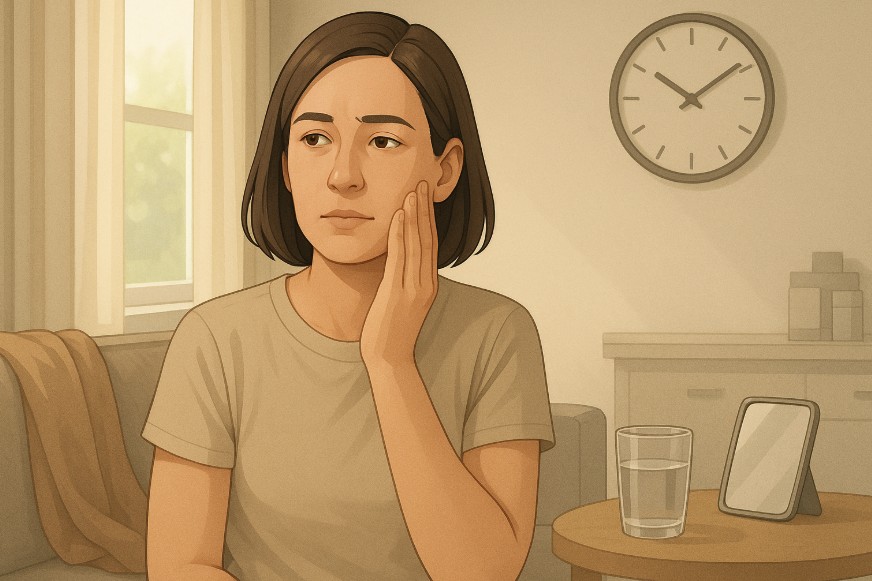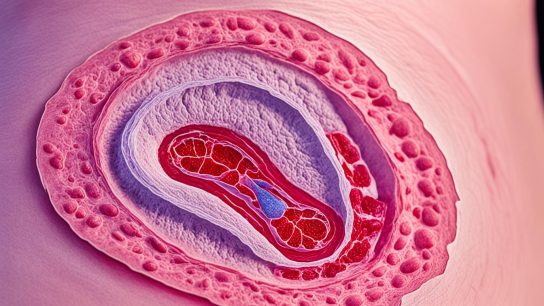If you’ve recently had a dental procedure, you’re probably wondering How long does Novocaine last? Whether it was for a filling, root canal, or tooth extraction, the numbing sensation left behind can be frustrating.
Novocaine, commonly used in dentistry to reduce pain during procedures, is incredibly effective, but the lingering numbness often overstays its welcome. Understanding how Novocaine works and why it lasts the amount of time it does is crucial for knowing what to expect after leaving the dental chair.
From your lips feeling swollen to the challenge of sipping a drink, these side effects can disrupt your routine. Fortunately, you’re not alone, and this guide explains everything you need to know about Novocaine, from how long it stays in your system to tips that may help you recover faster.
Let’s take a closer look at what Novocaine really is, how it works, and what you can do when the numbness seems to last forever.
What Is Novocaine and Why Is It Used in Dentistry?

Novocaine, also known by its generic name procaine, is a local anesthetic used by dentists to numb a specific area of your mouth during dental procedures. It helps block nerve signals from transmitting pain to your brain, allowing your dentist to work without causing you discomfort.
Originally developed in the early 1900s, Novocaine was one of the first widely accepted local anesthetics. Though many modern dentists now use alternatives like lidocaine or articaine, the term “Novocaine” has remained a popular catch-all term for all local numbing agents used in dental work.
Common dental procedures where Novocaine is used:
- Fillings
- Root canals
- Tooth extractions
- Cosmetic treatments
- Gum surgery
Dentists may choose Novocaine or a similar local anesthetic based on your health history, the complexity of the procedure, and how your body reacts to anesthesia. Regardless of the specific drug used, the goal remains the same to keep you pain-free during treatment.
Knowing that Novocaine serves as a temporary pain shield can help ease any anxiety you may feel about upcoming dental visits.
How Long Does Novocaine Last in Your System?

After your dental treatment ends, you might start wondering just how long the numbing will continue. The answer isn’t the same for everyone because several variables come into play, from the dose you received to how your body metabolizes the drug.
The experience can vary from one dental visit to another, even for the same person. Generally, Novocaine numbs the targeted area within minutes and can last from 30 minutes to over 2 hours, with some lingering effects for even longer.
Let’s explore this further through three crucial questions.
How Long Does the Average Novocaine Numbness Last?
On average, Novocaine provides numbness for 30 to 60 minutes. However, that doesn’t mean you’ll regain full sensation immediately afterward. You might continue to feel tingling, heaviness, or even partial numbness for up to 3 to 5 hours after your procedure.
Factors like whether or not epinephrine is used can extend the effect. Epinephrine constricts blood vessels, reducing the blood flow in the area and keeping the anesthetic concentrated for a longer period.
When Does Novocaine Reach Its Peak, and How Does It Wear Off?
The numbing effect of Novocaine typically kicks in within 5 to 10 minutes of injection. At its peak, you’ll notice complete numbness in the treated area.
As time progresses, the sensation begins to wear off gradually. First, you may feel a slight tingling sensation. Then slowly, normal feeling returns, starting with the tooth, followed by the surrounding tissues like the lips and tongue.
Complete fade-out usually occurs between 2 to 5 hours post-procedure, depending on the individual and the anesthetic used.
What Can Change How Long Novocaine Lasts for You?
Not everyone metabolizes Novocaine the same way.
Several factors influence its duration in your system, including:
- Dosage amount based on your dental treatment
- Use of epinephrine as an additive
- Your body’s metabolism
- The complexity of the procedure
Understanding these variables can help manage your expectations and reduce worry when numbness seems to linger longer than expected.
What Factors Affect How Long Novocaine Lasts?

You might find yourself wondering why your Novocaine wears off faster or slower than someone else’s. The answer lies in how different physiological and procedural factors interact with the anesthetic.
Understanding these factors helps you better predict the duration and prepare accordingly. Let’s take a look at each of them in more detail.
Does the Type and Length of Dental Procedure Affect Novocaine?
Absolutely. Shorter procedures like cavity fillings often require less Novocaine, while more involved treatments such as root canals or oral surgeries might require higher doses or multiple injections.
The complexity of the procedure also determines how deeply the anesthetic needs to penetrate.
For example:
- Fillings may need only one injection
- Extractions might involve multiple or deeper injections
- Oral surgeries often include anesthetics with longer durations
More complex procedures equal more anesthetic, which means longer-lasting effects.
Does Your Metabolism and Body Weight Play a Role?
Yes, your body’s metabolism significantly influences how quickly you process and eliminate Novocaine. People with a faster metabolism often experience shorter numbing durations, while those with slower metabolic rates might feel the effects for longer.
Your body weight also affects how much anesthetic is required and how it disperses. Heavier individuals might need more Novocaine, which can extend its duration in the body.
Can Medications and Tolerance Levels Impact Novocaine?
Some medications can interact with local anesthetics, either enhancing or reducing their effects. For instance, medications that affect the nervous system may interfere with how your body responds to numbing agents.
Additionally, if you’ve undergone multiple procedures in a short period, your body may develop a higher tolerance, requiring more Novocaine for the same numbing effect. This can also prolong the recovery period.
Does the Injection Site and Technique Influence Novocaine’s Duration?
Yes, the location of the injection matters. Injections in the lower jaw often take longer to wear off compared to the upper jaw, due to the larger nerves and denser bone structure.
Moreover, the dentist’s technique how and where the injection is administered, can influence how quickly the medication takes effect and how long it remains active.
By recognizing how these factors play a role, you can better understand why your Novocaine experience might differ from others.
How Does Novocaine Numbness Feel and When Does It Wear Off?

After receiving Novocaine, you might feel like half of your face is asleep. The sensation can be odd, sometimes even frustrating, especially when you’re trying to speak, drink, or smile. But this sensation is completely normal and part of the anesthetic’s job.
You’ll typically feel:
- Tingling or buzzing sensation around your lips and cheeks
- Numbness that may extend to the tongue and even the eyelids
- Difficulty controlling facial expressions
- A heavy feeling in the affected area
These sensations fade gradually. First, you’ll regain movement in the tooth and then in your surrounding tissues. Most people notice the feeling returning between 2 to 5 hours after the injection. If the numbness persists beyond 6 hours, it may be time to call your dentist.
Rest assured, the weird facial feelings are only temporary and part of the healing process.
What Can You Do to Make Novocaine Wear Off Faster?

While there’s no magic switch to turn off numbness, there are some effective ways to speed up the recovery process. These tips aim to boost blood flow to the affected area, helping your body process and eliminate the anesthetic more quickly.
What Are Safe Tips to Speed Up the Recovery?
Engaging in light activities is a great way to accelerate blood circulation.
Some helpful options include:
- Taking a short walk to get your body moving
- Gently massaging your face (but avoid the injection site)
- Applying a warm compress to increase blood flow
- Staying hydrated to aid in metabolism
All these methods promote circulation, which helps your body clear the drug naturally.
What Should You Avoid Doing While Numb?
During the numb phase, there are a few actions you should avoid:
- Don’t eat hard or hot foods to avoid biting your lip or tongue
- Avoid chewing gum or using straws
- Refrain from touching the injection area directly
- Don’t undergo strenuous physical activity without approval
Following these precautions keeps you safe and prevents accidental injury while your mouth is still numb.
What Home Remedies or Practical Tips Actually Work?
Home remedies are simple but effective:
- Talking or gently moving your jaw stimulates circulation
- Sleeping it off allows your body to process the anesthetic naturally
- OraVerse injection (if available from your dentist) can help reverse the effects more rapidly
These tips, while not instant fixes, are known to reduce the duration of numbness significantly when used correctly.
By applying these strategies and exercising patience, you’ll likely start feeling normal again within a few hours.
When Should You Be Concerned About Prolonged Numbness?

While it’s common for Novocaine to linger for several hours, prolonged numbness beyond six hours is not typical and may be a sign of complications.
Red flags to watch for include:
- Persistent numbness in the same area long after the expected duration
- Tingling that turns painful or becomes more intense
- Difficulty moving facial muscles even after the procedure
- Sudden swelling or discomfort at the injection site
These could be signs of nerve irritation or, in rare cases, nerve damage. If you experience any of these, you should contact your dentist immediately for an evaluation.
Acting early can help your dentist intervene if necessary and ensure your recovery goes smoothly.
What Are Common Side Effects of Novocaine?
Although Novocaine is generally safe and well-tolerated, side effects can still occur. Most are mild and temporary, but knowing what to expect helps reduce anxiety.
Typical side effects include:
- Dizziness or lightheadedness
- Headache or minor muscle twitching
- Tingling and minor pain at the injection site
- Temporary confusion or slurred speech
In very rare cases, people may experience allergic reactions or severe side effects such as:
- Difficulty breathing
- Irregular heartbeat
- Swelling or rash
- Seizures
Always inform your dentist of your full medical history and any medications you are taking before the procedure. This ensures the anesthetic chosen is the best and safest for you.
How Does Novocaine Compare to Other Dental Anesthetics?

Novocaine has been widely replaced by modern anesthetics, but it’s still used or referenced often. Understanding how it stacks up against newer options can help you discuss your preferences with your dentist.
Here’s how Novocaine compares to others:
- Novocaine: Shortest-lasting wears off in about 30 to 60 minutes
- Lidocaine: More potent and lasts 90 to 120 minutes
- Articaine: Strong, fast-acting, and lasts up to 180 minutes
- Mepivacaine: Used when epinephrine is not suitable
Dentists often choose anesthetics based on your health, the type of dental work, and how long they need the numbing to last.
Discussing your options beforehand can help you make informed decisions.
Table: Comparison of Common Dental Anesthetics
Understanding the key differences between various local anesthetics can help you identify what’s being used during your treatment. Here’s a quick comparison:
| Anesthetic | Onset Time | Duration | Common Use |
| Novocaine | 5–10 mins | 30–60 mins | Fillings, minor work |
| Lidocaine | 2–3 mins | 90–120 mins | Deep cleaning, surgery |
| Articaine | 1–3 mins | 60–180 mins | Extractions, root canals |
| Mepivacaine | 2–4 mins | 30–90 mins | Epinephrine-free cases |
This table helps illustrate how Novocaine compares in both speed and duration, making it easier for you to understand what your dentist might use.
Conclusion
Knowing how long Novocaine lasts can help you feel more prepared and less anxious after your dental procedure. From the type of anesthetic used to your individual metabolism, many factors play a role in how long numbness lasts and how quickly you recover.
Most importantly, understanding the process can help you make informed decisions and avoid unnecessary worry. By applying safe techniques to encourage recovery and staying informed about potential side effects, you’ll be back to normal in no time.
If you ever feel uncertain or experience unusual symptoms, don’t hesitate to contact your dentist. Your comfort and well-being always come first.
FAQs
Can novocaine last more than a few hours?
Yes, in some cases Novocaine effects can last up to 5 hours, depending on the dose and your metabolism.
Is it normal to feel tingling after novocaine wears off?
Yes, a tingling sensation is common as the anesthetic wears off and feeling returns to the area.
What should you eat after novocaine wears off?
Stick to soft, non-irritating foods like yogurt, mashed potatoes, and soups once full feeling returns.
How long should you wait before driving after novocaine?
You can drive as soon as the numbness fades and you feel alert, typically within a couple of hours.
Can novocaine cause anxiety or dizziness?
Yes, mild dizziness or anxiety can occur, but these effects are usually temporary and resolve on their own.
How does novocaine affect children differently than adults?
Children may metabolize Novocaine faster or slower, and doses are carefully adjusted for their size.
Does novocaine wear off faster if you’re active?
Yes, light physical activity can increase blood flow and may help speed up the numbing fade-out process.






